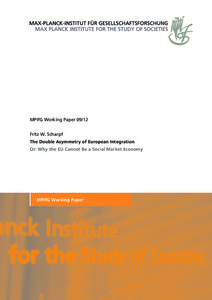Nothing learned from the crisis? Some remarks on the Stability Programmes 2011-2014 of the Euro area governments
"We analyse the newly updated Stability Programmes of the Euro area governments by applying the simple accounting identity by which the financial balances of the government, the private sector and the foreign sector always sum to zero. While the focus of the old Stability and Growth Pact was so...
| Main Authors: | , , |
|---|---|
| Institution: | ETUI-European Trade Union Institute |
| Format: | TEXT |
| Language: | English |
| Published: |
Düsseldorf
2011
HBS |
| Subjects: | |
| Online Access: | https://www.labourline.org/KENTIKA-19136565124919547479-Nothing-learned-from-the-crisi.htm |
| _version_ | 1771659895997726720 |
|---|---|
| author | Semieniuk, Gregor van Treeck, Till Truger, Achim |
| author_facet | Semieniuk, Gregor van Treeck, Till Truger, Achim |
| collection | Library items |
| description | "We analyse the newly updated Stability Programmes of the Euro area governments by applying the simple accounting identity by which the financial balances of the government, the private sector and the foreign sector always sum to zero. While the focus of the old Stability and Growth Pact was solely on the government balance, the current euro crisis has shown that this narrow focus was wrong and that macroeconomic stability within the monetary union requires reducing imbalances between all three sectors of individual member states. While the need for overcoming these imbalances is now increasingly recognised by economists and policymakers, we argue that the projections for achieving stability in the current Stability Programmes are very likely too optimistic. We show that, individually, the Stability Programmes rely on optimistic assumptions about GDP growth; collectively, they require an improvement of the Euro area's current account with the rest of the world, the continuation of significant current account imbalances within the Euro area, and a steep drop of private balances in some countries. Based on some simple counterfactual simulations, we conclude that a symmetric effort at rebalancing current accounts would most likely require a slowdown of fiscal consolidation (in the current account surplus countries) but would be required to successfully address the euro area's macroeconomic challenges and thereby not only allow for consolidation in the medium term but also lead to the desired stability." |
| format | TEXT |
| geographic | EU countries |
| id | 19136565124919547479_c676653a998e421f9f9b906e51b5f217 |
| institution | ETUI-European Trade Union Institute |
| is_hierarchy_id | 19136565124919547479_c676653a998e421f9f9b906e51b5f217 |
| is_hierarchy_title | Nothing learned from the crisis? Some remarks on the Stability Programmes 2011-2014 of the Euro area governments |
| language | English |
| physical | 33 p. Digital |
| publishDate | 2011 |
| publisher | Düsseldorf HBS |
| spellingShingle | Semieniuk, Gregor van Treeck, Till Truger, Achim economic recession EMU EU policy macroeconomics Stability Pact statistics Nothing learned from the crisis? Some remarks on the Stability Programmes 2011-2014 of the Euro area governments |
| thumbnail | https://www.labourline.org/Image_prev.jpg?Archive=112321393050 |
| title | Nothing learned from the crisis? Some remarks on the Stability Programmes 2011-2014 of the Euro area governments |
| topic | economic recession EMU EU policy macroeconomics Stability Pact statistics |
| url | https://www.labourline.org/KENTIKA-19136565124919547479-Nothing-learned-from-the-crisi.htm |

